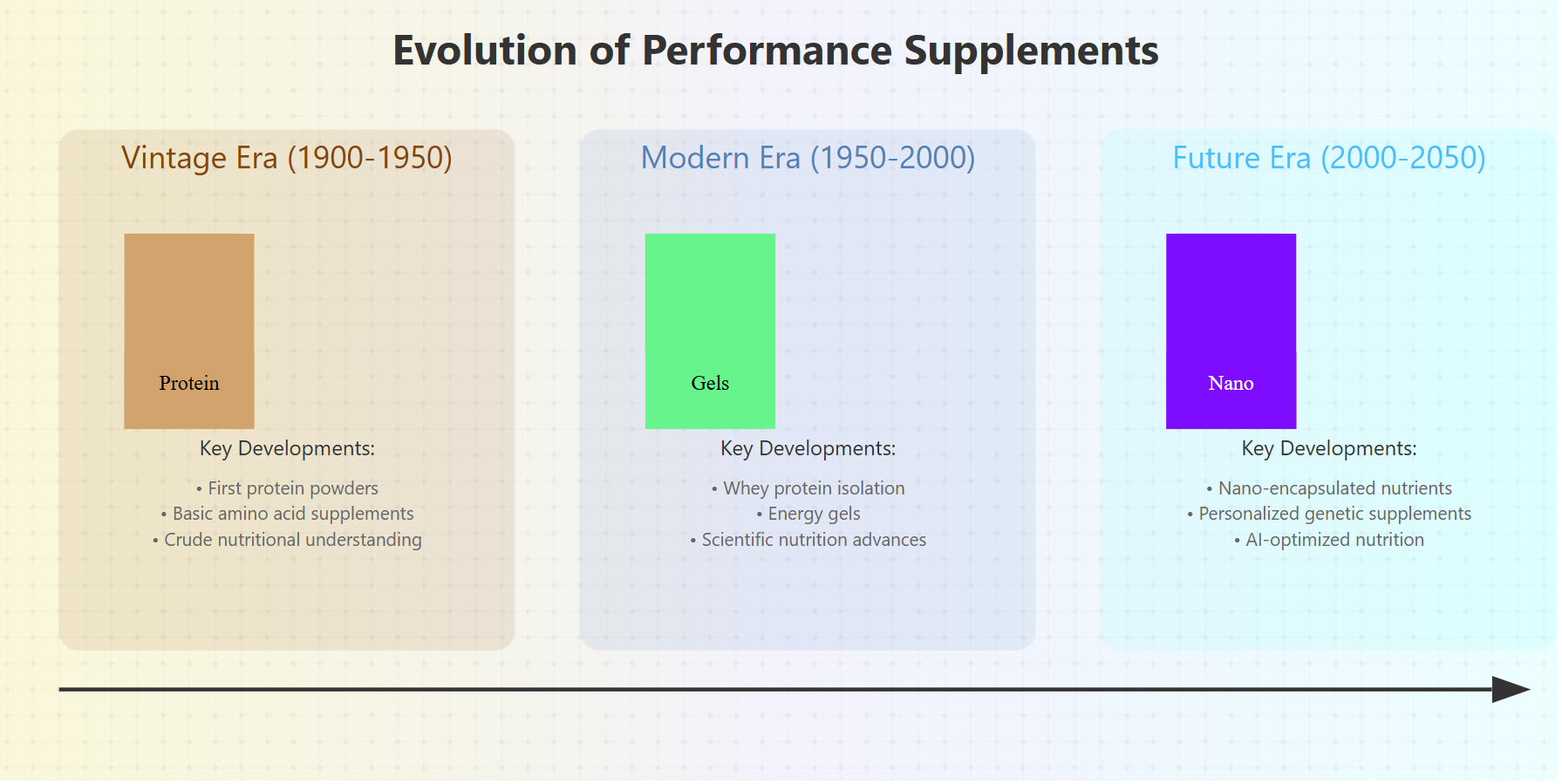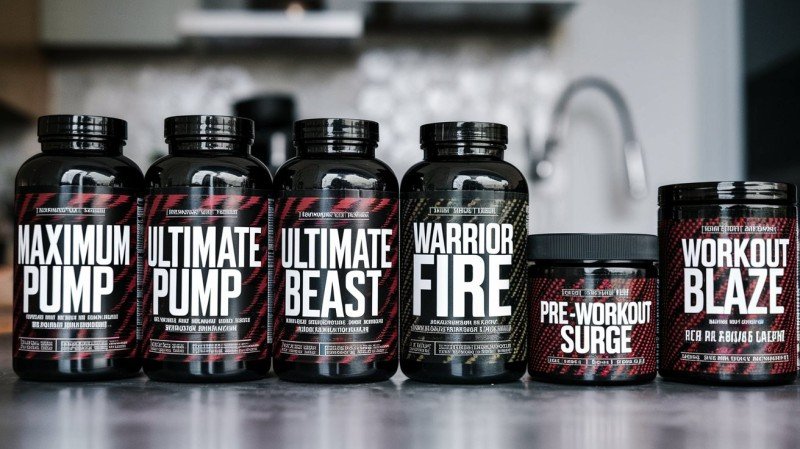Performance supplements, intended to elevate athletic competence and overall health, have been utilized for centuries by sportspeople and fitness aficionados. This narrative aims to delve into the rich and intricate history of performance supplements, tracing their origins back to the era of the ancient Greeks, and chronicling their evolution to the modern-day world of sports.
Athletes, through various eras, have continually devised novel strategies to augment their performance. Initially, these strategies encompassed the use of natural elixirs like herbs, spices, and plant extracts. The advent of technology in recent times has facilitated the creation of intricate performance-enhancing supplements. These modern-day formulations leverage both traditional ingredients and scientifically backed elements for improved performance.
The fundamental objective of these supplements is to amplify both physical and cognitive performance, power, and stamina. The secret to choosing the perfect performance supplement lies in comprehending the impact specific ingredients have on the human body.
Organic Chocolate Protein Blend - 13.2oz
Fuel Your Workouts Naturally with Our Delicious Chocolate Protein Powder
Product information
$19.99
Product Review Score
4.6 out of 5 stars
179 reviewsProduct links
The Genesis of Performance Supplements
The utilization of performance supplements by athletes and bodybuilders to magnify their physical capabilities can be traced back thousands of years. Despite the exponential growth of the performance supplements market in recent times, their roots are deeply embedded in ancient history.
Historical records from the era of the ancient Greek physician, Hippocrates, reveal one of the earliest known instances of performance supplements. Hippocrates suggested a mixture of sesame seeds and honey for an energy boost, a formula still employed by modern-day athletes before their workout sessions.
Ancient Roman texts provide further evidence of early performance supplements usage. Roman gladiators, in their quest for strength and stamina, often resorted to herbal concoctions and tonics. Ginseng, a popular herb from this era, continues to find favor with athletes today due to its perceived endurance and strength-enhancing properties.
The performance supplements market, as we know it today, really started flourishing in the 1970s, with the development and widespread accessibility of synthetic supplements. Today, the market is flooded with a vast array of performance supplements, ranging from energy drinks and protein powders to performance-enhancing drugs.
The Emergence of Synthetic Supplements
The late 19th century marked the dawn of dietary supplements, thanks to the emergence of laboratory synthesis of chemical compounds. This technological advancement made compounds like methylparaben, ethylparaben, propylparaben, and butylparaben readily available for supplement production, significantly improving the physical properties of food.
The early 20th century witnessed an expansion in scientific research into the potential of dietary supplements. This led to the development of targeted supplements, encompassing protein supplements, vitamins, and minerals. Technological advancements in the late 20th century facilitated the production of synthetic supplements such as amino acids, omega-3 fatty acids, B-vitamins, and probiotics, enabling their mass production. Consequently, synthetic supplements are the most commonly used types of performance supplements in the present day.
Supplements Through the Ages
While modern performance-enhancing supplements have undergone substantial technological advancements, supplementation to gain an edge has been a practice almost since the dawn of civilization. The choice of supplements has varied based on resource availability, cultural preferences, and societal beliefs.
In Ancient Greece, Rhodiola Rosea, a flowering plant native to the alpine regions of Europe and Asia, was a prevalent performance supplement. The ancients believed that the consumption of dried parts of the plant could enhance mental alertness and physical prowess. Garlic, renowned for its distinctive flavor and potential benefits such as increased strength and overall vitality, was another common supplement used by the Ancient Greeks.
In the 17th century, English athletes were known to use gin-soaked raisins as a stimulant, claiming it aided in combating muscle aches and arthritis. The late 1800s saw the boxer John L Sullivan popularize alcohol as an enhancer, advocating the benefits of champagne before and after fights.
The 20th century witnessed the rise of anabolic steroids as a dominant performance-enhancing supplement among bodybuilders and athletes. More recently, these have been substituted by safer and more effective supplements such as creatine, branched-chain amino acids, and beta alanine.
Despite the evolution in the choice of supplements over time, their underlying purpose has remained constant: to enhance performance in any given activity. 
The Contemporary World of Performance Supplements
The late 20th century ushered in the contemporary era of performance supplements, coinciding with the rising popularity of sports nutrition research. The present-day market offers a plethora of ingredients, combinations, and products to cater to the demands of athletes, gym enthusiasts, and bodybuilders.
Modern supplements aim to foster muscle growth and strength, augment physical performance and endurance, curtail fatigue, and expedite recovery time. Typical categories of contemporary supplements include protein powders, carbohydrates, nootropics, creatine, pre- and post-workout drinks, fat burners, and amino acids. While these supplements are largely deemed safe, it's crucial to consult a healthcare professional before initiating any supplement regimen, considering the individual variations in the human body's response to these supplements.
Controversial Aspects of Supplements Usage
The use of performance supplements, particularly among athletes, is a contentious issue in the health and fitness industry. While some argue that supplements provide an unfair edge and should be regulated, others advocate their necessity to optimize performance and recommend minimal regulation.
The history of performance supplements has been marred by accusations of unethical behavior and cheating, leading many organizations to establish stringent guidelines for supplement usage. Certain professional athletic organizations outright ban the use of specific supplements, with violations resulting in sports disqualifications.
The potential for severe health risks, the presence of untested or unregulated ingredients, and the high costs associated with certain supplements are some of the other contentious aspects associated with performance supplements.
The Prospective Future of Performance Supplements
The performance supplement industry has experienced remarkable growth in recent times, with products ranging from protein powders to pre- and post-workout mixes. As technology progresses, the industry is expected to introduce more innovative performance supplements. Already, tech start-ups have developed personalized supplement ingredients tailored to individual needs and objectives. Continuous research and development in protein and complex carbohydrates are likely to yield superior performance supplements.
Furthermore, the industry is anticipated to evolve further, providing personalized solutions for athletes and active individuals, integrating performance supplements with other aspects of health optimization, like diet, exercise, mental well-being, and sleep.
Conclusion
From ancient herbs to today's scientifically-developed supplements, performance supplements have played a significant role in human history, providing a myriad of benefits to our physical and cognitive capabilities. It is, however, imperative to consider potential side effects and seek medical advice before embarking on any supplement regimen.




